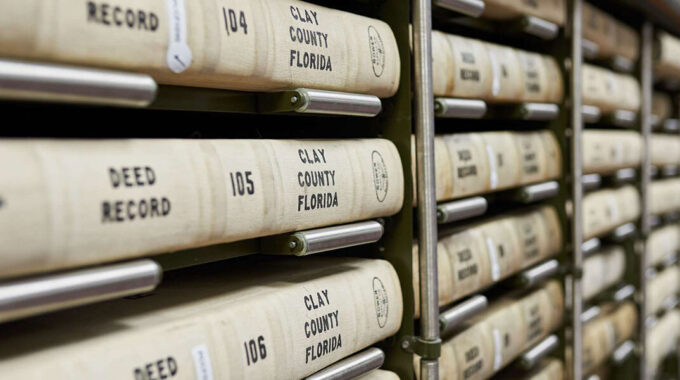Last week, the CoreVest team attended and proudly sponsored the IMN Single Family Rental (East)…
Understanding the Risks of Buying Tax Deed Properties

Buying tax deed properties can be an attractive investment opportunity for real estate investors looking to purchase homes at a possible discount, however, it is important to understand the risks involved before making a purchase. Tax deed properties are sold at public auctions when the owner fails to pay property taxes, and the winning bidder receives ownership of the property. While this may seem like a straightforward transaction, there are several risks that buyers should be aware of. This article provides an overview of tax deed properties, outlines the potential risks, and offers tips for successfully navigating the auction process.
What are Tax Deed Properties?
Tax deed properties refer to real estate assets that have been foreclosed on by municipalities due to unpaid property taxes. Each year, thousands of properties across the United States are auctioned through tax deed sales. When an owner fails to pay the taxes on their property, the municipality can place a tax lien on the asset and if the back taxes remain unpaid after a redemption period, the property goes into tax foreclosure and tax collectors can sell the home through a public tax deed sale. Investors can then bid on these tax deed properties giving them the opportunity to purchase a property for potentially less than it would sell on the open market.
Tax Lien vs. Tax Deed
A tax lien and tax deed sale are two different processes used by local governments to recover unpaid property taxes. They involve the sale of properties with delinquent taxes, but the mechanisms and outcomes of these auctions differ significantly. In short, a tax lien sale involves selling the rights to collect delinquent taxes, while tax deed sales involve selling ownership rights to the property itself.
When a property owner fails to pay required property taxes, the municipality places a tax lien on the property. Homeowners can no longer sell or refinance their property until they pay off their owed taxes and remove the lien. If the owner does not pay their unpaid taxes during a certain time, the municipality may sell the tax lien at a public auction, only after publicly notifying the property’s owners. Investors bid for the right to collect the outstanding taxes, penalties, and interest from the property owner.
The winning bidder pays the municipality the entire tax bill on the home and receives a tax lien certificate allowing them to collect the unpaid fees directly from the homeowners. Buying a tax lien does not give ownership of the home, only the rights to collect fees. If the property owner does not pay off these amounts after a set redemption period, the tax lien converts to a tax deed, allowing the transfer of ownership rights to the investor. In this case, investors make profits on the interest of the lien and the potential discounted sale of the home, increasing profits when flipping, renting, or selling.
In a tax deed sale, the local government sells the ownership rights of the property to the highest bidder, acquiring full ownership of the property, not just the lien. Understanding the difference between tax liens and tax deeds is key for investors interested in purchasing properties through auctions.
Understanding Redemption Periods
The redemption period is a crucial concept for both property owners and tax deed investors. It refers to the length of time given to the original owner to repay all unpaid property taxes plus accumulated interest, fees, and penalties in order to maintain ownership. Redemption periods typically last 1-3 years, but vary by state. During this window, the property cannot move to a tax deed sale, as the title remains with the owner, but if taxes remain unpaid after the redemption period expires, the tax lien converts into a tax deed, transferring ownership. Tax deed investors cannot claim ownership during the redemption window, but gain title at expiration. Knowing redemption timeframes allows proper timing of purchases.
How Tax Deed Auctions Work
During a tax deed auction, investors competitively bid on foreclosed properties being sold by the county treasurer or other taxing authority. The county sets a minimum bid, and the highest bidder obtains the tax deed and ownership rights. This clears existing liens and mortgages, but the new owner is still responsible for paying any unpaid taxes and fees related to the property. Former owners generally cannot reclaim the property, but if the winning bid exceeds owed taxes, excess funds can be requested to be paid to the former owner within a state-dependent time limit.
For example, if a property’s value is $250,000 and $20,000 in taxes is owed, a winning bid of $100,000 might occur. After paying the owed taxes, the former owner could receive the remaining bid amount of $80,000 from the county, while the investor obtained a $250,000 property for $100,000.
After purchase, additional expenses emerge. Clearing the property’s title, which has a “cloud,” is necessary before selling. This can be achieved through a quiet title action, a lawsuit to establish official ownership, or by ordering a title certification through a consultant and title insurance agent. Costs for these processes may be around $2,000 each.
Potential Tax Lien Investing Risks to Understand
Outstanding Liens or Mortgages – There may still be outstanding claims, liens, or mortgages attached to the property that survive the tax deed sale. This can complicate legal ownership and mean the new buyer is still responsible for settling these debts. Thorough research is required to uncover any nuisances.
Property Condition Issues – Since tax deed properties are often distressed or abandoned by the previous owner, there is a high probability rehabilitation costs may be required. Properties may have substantial damage, vandalism, or maintenance issues that become the responsibility of the buyer. Inspection prior to bidding is key.
Legal Errors – The tax deed sale process must strictly follow proper legal procedures laid out by state laws. Any minor error along the way could potentially invalidate the tax deed, and cause ownership issues for the buyer. Working with real estate attorneys helps avoid missteps.
Market Fluctuations – The market value and potential resale price of the tax deed property can change after purchase, impacting investment returns. Analyzing market conditions and trends will provide reasonable value estimates, but conditions constantly shift.
Tips for Maximizing Returns on Tax Lien Properties
Do your Research – Research property details, title status, liens, and market value thoroughly before bidding. Look into all costs for necessary repairs and unpaid taxes. Complete due diligence avoids surprises.
Consult with Professionals – Consult real estate and legal professionals for guidance on local regulations, property viability, and risk mitigation strategies. Their expertise assists in making informed bids.
Create a Plan – Develop a bidding strategy with a maximum purchase price based on research and expert input. Stick closely to set limits during the live auction to avoid overpaying.
Monitor Auction Activity – Closely monitor bidding activity during the live auction in real-time to adjust strategy. Make informed, competitive bids based on other buyer activity.
Review the Details – Verify that all post-purchase legal requirements are met properly and in a timely manner to secure clear ownership. Don’t lose property over a technicality.
The Bottom Line
Tax deed auctions provide investors an opportunity to purchase real estate generally below market value, with the trade-off of accepting certain risks. With adequate research and preparation, buyers can develop strategies to secure profitable properties while mitigating key risks like outstanding liens, property condition uncertainty, legal issues, and market fluctuations. Working closely with knowledgeable real estate and legal professionals also proves invaluable for understanding regulations, evaluating property viability, and avoiding costly mistakes.
Overall, tax deed sales offer investors a unique avenue for acquiring discounted real estate assets, but require thoughtful planning and diligent execution to maximize returns while minimizing downside risks. With the right approach, investors can build their portfolio at attractive valuations through these auctions.
CoreVest is a market leader in rental property loans and has helped thousands of investors finance their properties and improve their holdings. We’d love to talk with you directly on how we can maximize the value of your rental or investment portfolios. Call us today at 844.223.7496 or email or email [email protected] to discuss how CoreVest can help you grow!
#IG


